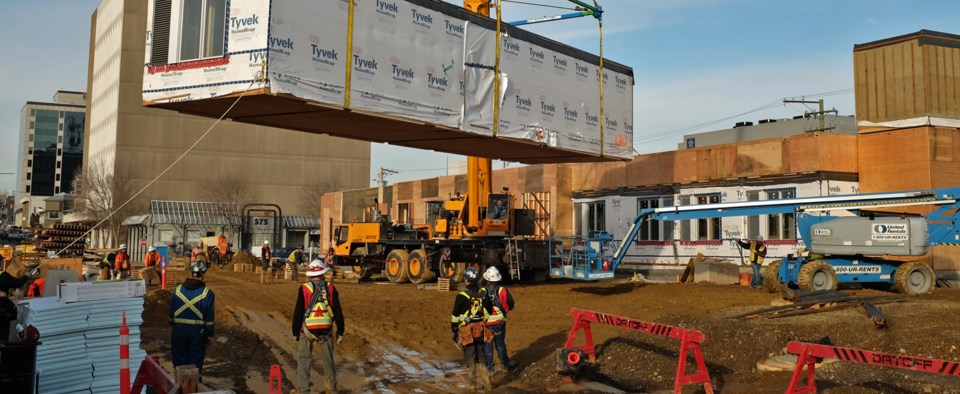Although downtown Prince George is facing social problems related to the opioid crisis, it’s also apparent that development in the area is taking off.
One of the reasons there’s been an increase in development downtown is because of the city’s revitalization tax exemption (RTE), part of the Downtown Incentive Program.
In fact, it's been so successful, a study found that it’s no longer needed.
The RTE program was designed to attract investment to the downtown by financially compensating for some of the risk of developing in the area.
Examples of risk included high construction costs associated with the floodplain, potential lack of pre-sales, minimal population and the question as to whether people want apartment-style living downtown.
The program has resulted in 23 projects that received the RTE or Early Benefit Option since 2012.
“This deserves a moment of reflection and applause,” said Coun. Garth Frizzell during last night’s council meeting (March 23) when council reviewed the study.
“We’ve made the investment and we weren’t sure. A lot of people criticized us and at times we were uncertain. It played out and it was a success. You can look out this window and see what it has generated. We made the right choice and we are reaping the results right now.”
Additional projects currently under construction were not included in the study, but are also eligible to receive the RTE upon completion.
These include the Park House condominium development, an anchor residential project, as well as the recently announced student housing project by the Prince George Public Library.
The study done in the summer of 2019, by KRSS Solutions found that the program has met its goal of stimulating downtown development.
The study says the city has seen increased development, including increased taxation resulting from the program, which suggests that it’s priorities have been met.
The report stated that it’s anticipated that the increasing population in the area will continue to propel both commercial and residential development so the 10-year exemption is no longer necessary.
During last night’s council meeting, council passed the first three readings for a bylaw amendment that will begin to eventually phase out the program.
In the interim, the bylaw will also be amended to allow purpose-built rental developers to qualify for the new Municipal Revitalization Provincial Property Tax Exemption which was introduced by the province after the RTE.
The five recommendations to council included in the study were:
- Phase out the 10-year RTE Bylaw or reduce its cost to the city of Prince George.
- Change the current 10-year bylaw to include purpose-built rental housing including student housing so that eligible properties can receive the municipal Revitalization Provincial Property Tax Exemption.
- Continue to support an attractive investment environment in the downtown especially for residential with other Downtown Incentive Program elements.
- Partnering to leverage and enhance the city’s Downtown Development Incentives.
- Consider an opportunity to be bold and incent place-based design and development that sets Prince George apart from other cities.
The bylaw amendment would see existing RTE eligibility for project completion be Sept. 30, 2024 and any existing RTE executed contracts which were initiated prior to Dec. 16, 2019 be honoured beyond the Sept. 30, 2024 required completion date, by up to four years.
“While we can put these first three readings forward, and I’ll be supportive of that, I imagine that [the economic development] department is making sure every t is crossed and every i is dotted and keeping up with what is happening with the economy because no one is really certain anymore,” said Coun. Frizzell reflecting on the current COVID-19 pandemic.
Melissa Barcellos, City Manager of Economic Development, answered by reflecting on the length of the 2024 sunset date.
“When it comes to economic and business, in general, you have to be able to pivot and adapt as circumstances change so we are looking at that now,” said Barcellos.
“In terms of this report and recommendation, it is an extended sunset date so that gives quite a bit of time to apply and participate in the program.”
Council unanimously passed the first three readings for the amendments necessary to start this process.


